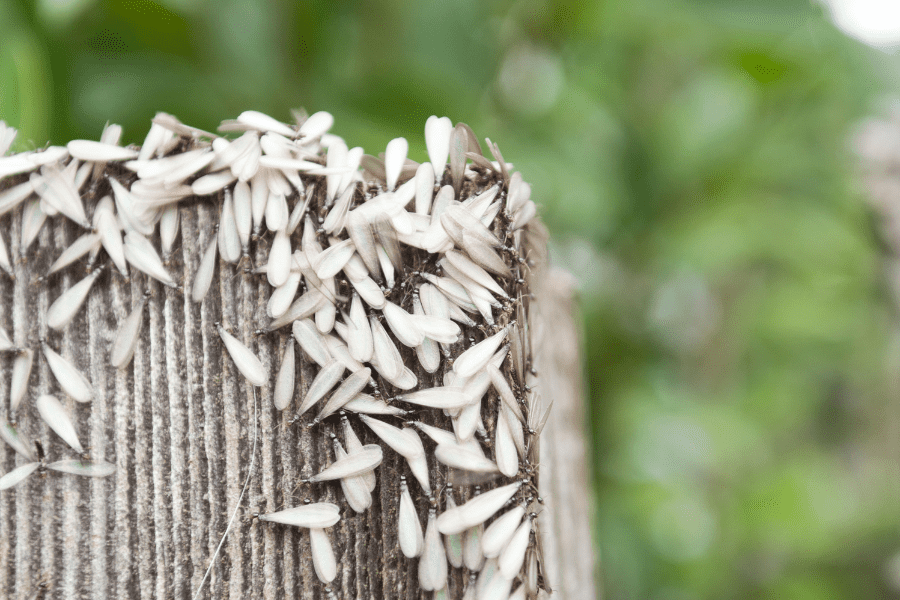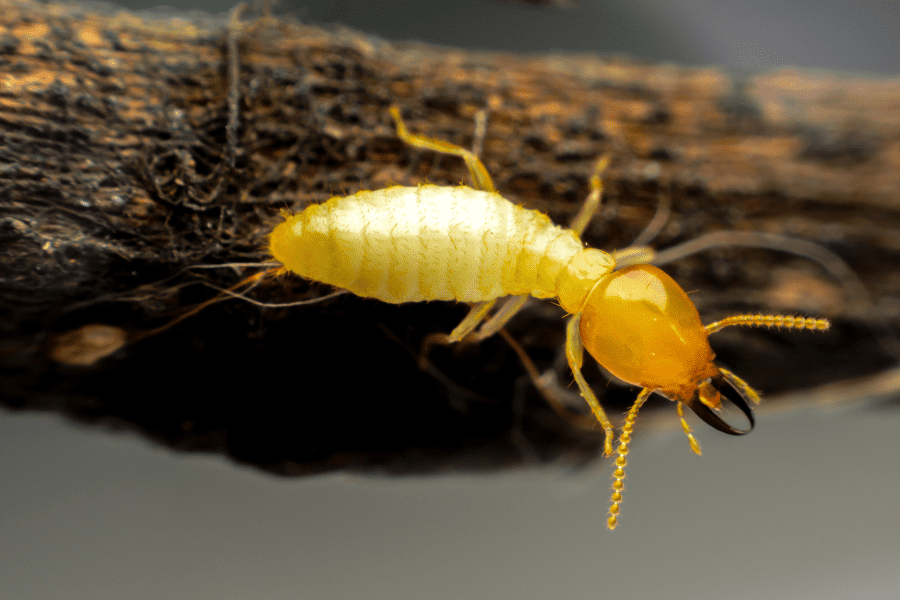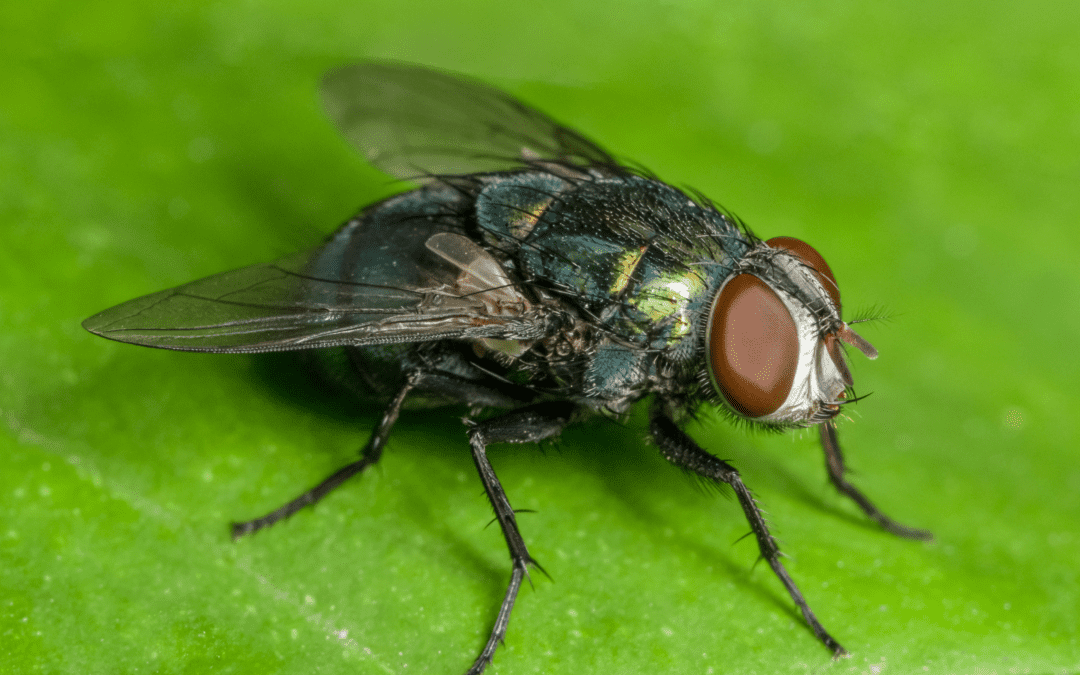READY TO GET STARTED?
REQUEST A FREE ESTIMATE
Fill out the form below or call (336) 226-1448 for a free, no-obligation estimate.

Once the cold weather begins to creep away is when we should begin to see swarming termites. Especially after a big rainfall, mature winged adults will swarm from their original nesting site in hopes of forming new colonies. The most common termite you will see swarming is the Eastern subterranean termite, which is native to North Carolina. Here are some fast facts about these termites:
Swarming is beneficial when creating new colonies. Termites swarm after a colony has reached a certain capacity and is ready to expand. This normally happens once per year for most colonies. Hundreds or even thousands of swarmers, also known as alates, are produced with the sole purpose of reproduction and expansion.
Swarming can occur indoors or outdoors. They cannot survive indoors because of the lack of soil to colonize. If found indoors, they are usually found near windows and light fixtures as they are attracted to light. Whether indoors or outdoors, they usually can’t cause damage. As swarmers, they can’t bite, sting, or chew. The presence of swarms indicates that a colony is nearby, though; so, although the swarmers can’t cause damage, the nearby colony can.
If you begin to see swarming termites and aren’t sure if your home has become infested, be sure to give your local termite control company a call and they can inspect your property and set up a proactive termite control plan.

Termites can be active well into the fall and winter months. They will typically find themselves digging a little deeper to keep warm. If they make their way into your home, then they don’t have a need to burrow deeper, as your home is already providing enough warmth for the winter.
Continuing termite control into the cooler months will help to protect your home up until spring begins again. Be sure to keep up with termite control to lessen the chance of termites swarming in the spring and summer months.
Regardless of the season, there are common signs of termite infestations to look for in your home, including:
If you suspect you have a termite problem or want to stay proactive against them, reach out to your local pest control company to receive a free termite inspection and discover the best plan of action perfect for you and your home!

Household pests are any undesired animal that has a history of living, invading, causing damage to, eating food from, acting as a disease vector for, or causing any other harm to a human habitat. While many are just considered a nuisance, some household pests can become dangerous as they pose a risk to health, property, and lifestyle. Also, household pests aren’t just limited to insects. They include arachnids, rodents, and wildlife.
While household pests can be found year-round, some are more common in the summer months. Here are four of the most common summer pests and how you can prevent them.
Mosquito season peaks during the summer months. Mosquitoes are able to reproduce in large numbers due to the warm weather and humid environments that accelerate their life cycle. If you have standing water on your property, you will most likely see mosquitoes since this is where they lay their eggs. Mosquitoes can be dangerous to humans as they carry pathogens that can cause serious diseases such as Zika and West Nile virus.
Mosquitoes can be prevented by:
Ants hibernate in the winter and come out in full force during the summer. Ants are usually seen indoors during the summer because they’re searching for food and water as these can become scarce for them. They are also building up their reserves for the fall and winter months.
Ants can be prevented by:
Termite swarming season is in the spring, but these newly established colonies grow exponentially in the summer. Termites can go long periods of time undetected. This allows them to cause significant damage to your home. It’s important to keep an eye out for signs of termites so you’re able to catch them early.
Termites can be prevented by:
Flies invade your home in the summer months to escape the heat. While they only reproduce during the hotter months, getting indoors allows them to do so even more prolifically.
Flies can be prevented by:
Don’t let these common pests ruin your summer. If you have a problem with any of these pests, contact your local pest control company. They will be able to help eliminate them safely and prevent them going forward.